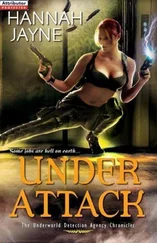‘A sense of invasion,’ wrote Virginia Woolf in her diary on 14 September, ‘that is lorries of soldiers & machines – like cranes walloping along to Newhaven. A raid is on … workmen on the hangar haystack – disguising a gun – said “Wish I was as sure of a thousand pounds as of winning the war.” ‘ 15 September 1940 was the day on which it was expected that German forces would invade Britain. ‘It may be this weekend,’ the Daily Herald had warned on the 12th, reporting that Hitler ‘has been accumulating shipping in the Channel ports, Hamburg and the Baltic, and obviously does not intend to let them rot. As the Prime Minister said last night, this invasion may never materialise: equally from present indications, it would seem that its attempt will not be long delayed. It may come anywhere in several heads from the coastline which is now in German hands. It is certain that everywhere it will meet with terrific opposition.’
There had already been an invasion scare on the night the blitz started. The previous week barges, motor launches and larger vessels had been photographed massing on the other side of the Channel, to such an extent that, according to the official history, ‘by the morning of the 7th there was much evidence from reconnaissance alone to suggest that an early landing might be expected’. In addition, German troops and dive bombers seemed to be moving into position ready for an attack, a rowing boat containing four Germans who confessed (or claimed) to be spies gathering intelligence for an invasion was captured off the English coast, and as the final clincher the moon and tides were in the right conjunction for such a crossing. The Chiefs of Staff were informed that an invasion might be imminent.
At 8.07 p.m. the signal ‘Operation Cromwell’ went out to all formations in London and the South-East for ‘immediate action’. Other commands were also told, but for information only. However, several zealous Home Guard commanders in various parts of Britain summoned their units by ringing church bells. These had been silenced after Dunkirk, and were only to be rung when it was clear that an invasion had started. In the febrile atmosphere of expectancy, heightened by notices flashed on cinema screens recalling soldiers to their barracks at once, rumours rapidly spread that the skies were already full of German parachutists, and flotillas of German motorboats were speeding towards English beaches. Members of the Home Guard hurried to their recruiting stations or carried out their jobs with rifles slung over their shoulders, householders paraded outside their homes with brooms, garden forks and spades, and the challenge ‘Who goes there?’ rang out throughout the land.
After this panic, General Sir Alan Brooke, Commander-in-Chief of Home Forces since July, tightened up procedures: in future no church bells were to be rung until he had personally counted a minimum of twenty-five German parachutists floating down onto British soil, and communicated that fact.
But the invasion did not come that night, nor any other. It was doubtful if the Germans could have mustered the 20,000 parachutists that the British government feared. The Kriegsmarine did not have any special landing craft at the time, and its commander, Admiral Erich Raeder, did not consider that a seaborne invasion was remotely feasible, while General Alfred Jodl, deputy to Field Marshal Wilhelm Keitel, head of the Oberkommando der Wehrmacht (OBW), the high command of the German armed forces, advised Hitler that invasion should only be contemplated when Britain was paralysed and ‘practically incapable of fighting in the air’. On 12 October Hitler postponed ‘Operation Sealion’, the planned invasion of Britain, and in January 1941 effectively cancelled it. But at the time, of course, no one in Britain could be sure that this was the case, and that the blitz was not the final ‘softening up’ prior to an invasion. A state of alertness was maintained, and would be reactivated on occasions both as a defence and to encourage the war effort.
London was not alone in those dark days of September and October 1940 in experiencing death, injury and destruction from the air. There were spasmodic raids on the Home Counties, Liverpool had been attacked sixty times by the end of the year, and German bombs had also fallen on the Midlands, Scotland, Wales, the south coast ports Southampton and Portsmouth, the West Country and the North-East. But the capital took the brunt of the Luftwaffe attack, with 27,500 high-explosive bombs and countless incendiaries and parachute mines dropped between 7 September and 13 November.
In those two months London became a city pockmarked with ruins and rubble, its streets assaulted, private spaces ripped open to public gaze, landmarks that had stood for centuries instantly made jagged and fragile, the aftermath of the previous night’s onslaught evident in the pall of smoke and dust that hung over the capital, the smell of burning that lingered in the autumn air, roads closed, the snaking coils of fire hoses, the weary, soot-blackened faces of the firemen, the ARP wardens, the heavy rescue squads, the numbing sense of exhaustion. Vere Hodgson, a Birminghamborn woman living and working as a social worker in west London, had come back to the capital ‘to face the blitz’, as she put it on 10 September 1940. ‘This was the night the anti-aircraft barrage took on a formidable tone, and gave Londoners some satisfaction. They had more to listen to than bombs falling one by one. I shall never forget the next fortnight as long as I live … sleepless, terrified nights, and days when you could fall off your chair with weariness, and yet somehow held on … the tense look on the faces of the inhabitants of Notting Hill Gate – for of course I ventured nowhere else!’
With newspapers forbidden to mention the precise locations of bomb damage, Londoners discovered the topography of destruction for themselves. Anthony Heap, a local government official living with his mother not far from King’s Cross station,
heard of all sorts of places near us which were supposed to have been bombed but on walking round this afternoon, observed that it was the usual pack of false rumours. With one exception Harrington Square where we used to live … I could see that two houses on the north side of the square had been completely demolished and a bomb had dropped in the roadway and blown a bus up against them. The bus was still there standing lengthways against the ruins. Furthermore the roofs had been blown off two houses on the corner of Lidlington Place and thirteen houses in Eversholt Street … Most of the square’s inhabitants had been down the shelter and escaped injury but one or two people had been killed and they were still trying to get out someone buried in the basement.
The volume of gas in our stove very slight today. Presumably some of the borough’s supply is being transferred to other districts where the mains have been hit.
I heard that Tussaud’s cinema caught a packet last night. So as soon as the All Clear went at 6.25 [on 9 September] I dashed along to see. And by gosh it had too. Only the front of it in Marylebone Road and the proscenium was left standing. The rest was completely demolished as were some buildings behind it as well … not a single window in any building in the vicinity remained intact. Huge crowds thronged along the Marylebone Road to see the ruins. It was one of the sights of London today.
10th Spent entire afternoon going round sightseeing in the raid devastated areas … Holborn was easily the worst of the lot. Most of the centre between it and Chancery Lane and Red Lion Square was laid waste …
‘Only two theatres kept open last night – the Coliseum and the Criterion. The West End and local cinemas kept open but hardly did any business,’ reported Heap, who by 16 September had got a job in Finsbury Council’s Borough Treasurer’s Office, and reported that ‘Every time anyone in the office goes out wage paying or rent collecting they come back having witnessed some fresh scene of devastation.’ Over the next few weeks he chronicled the damage to central London: St Paul’s Cathedral, where
Читать дальше












